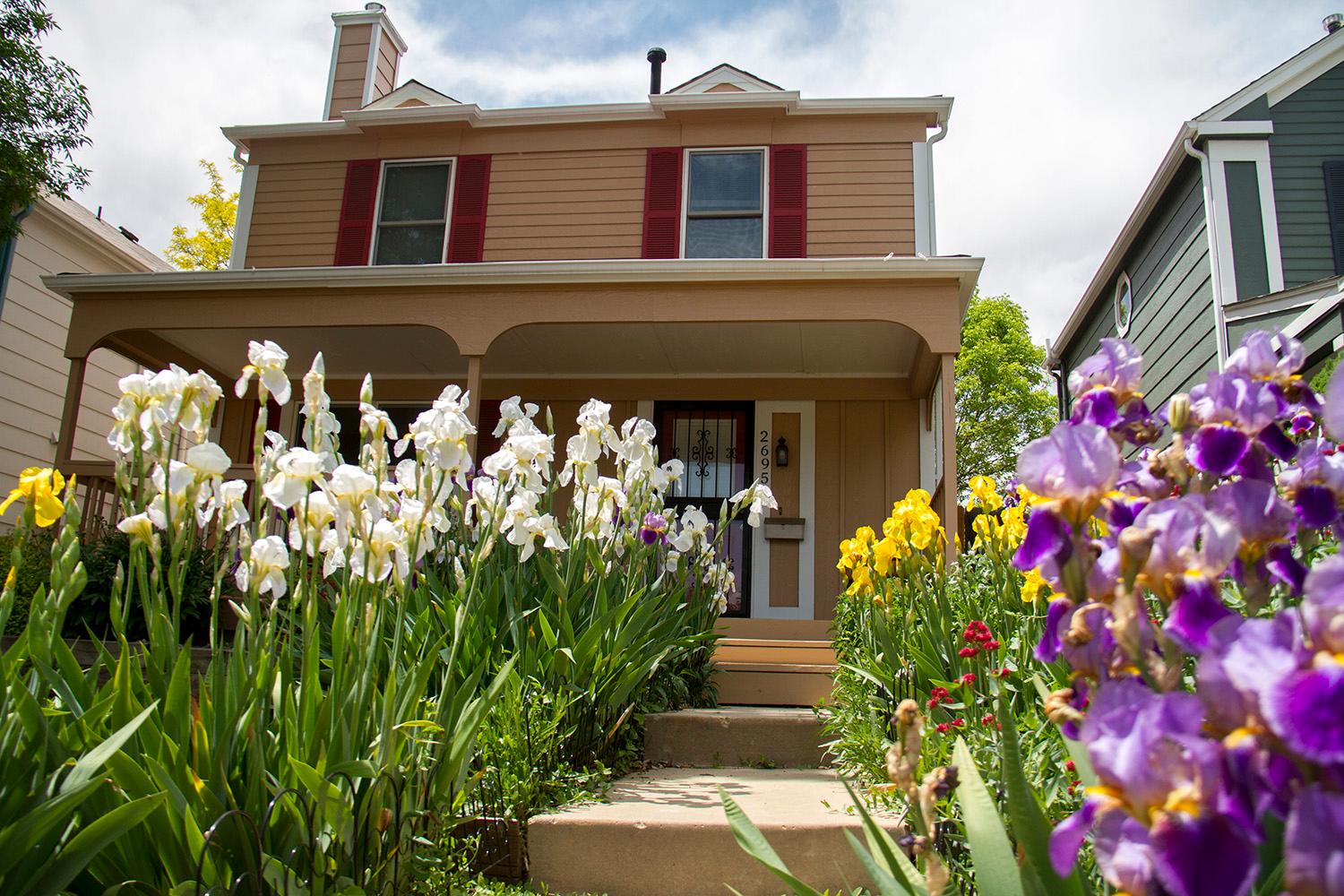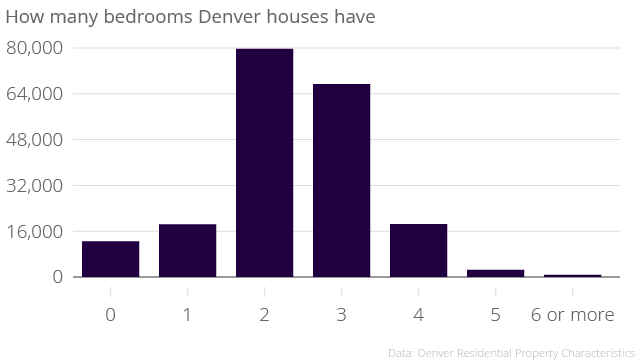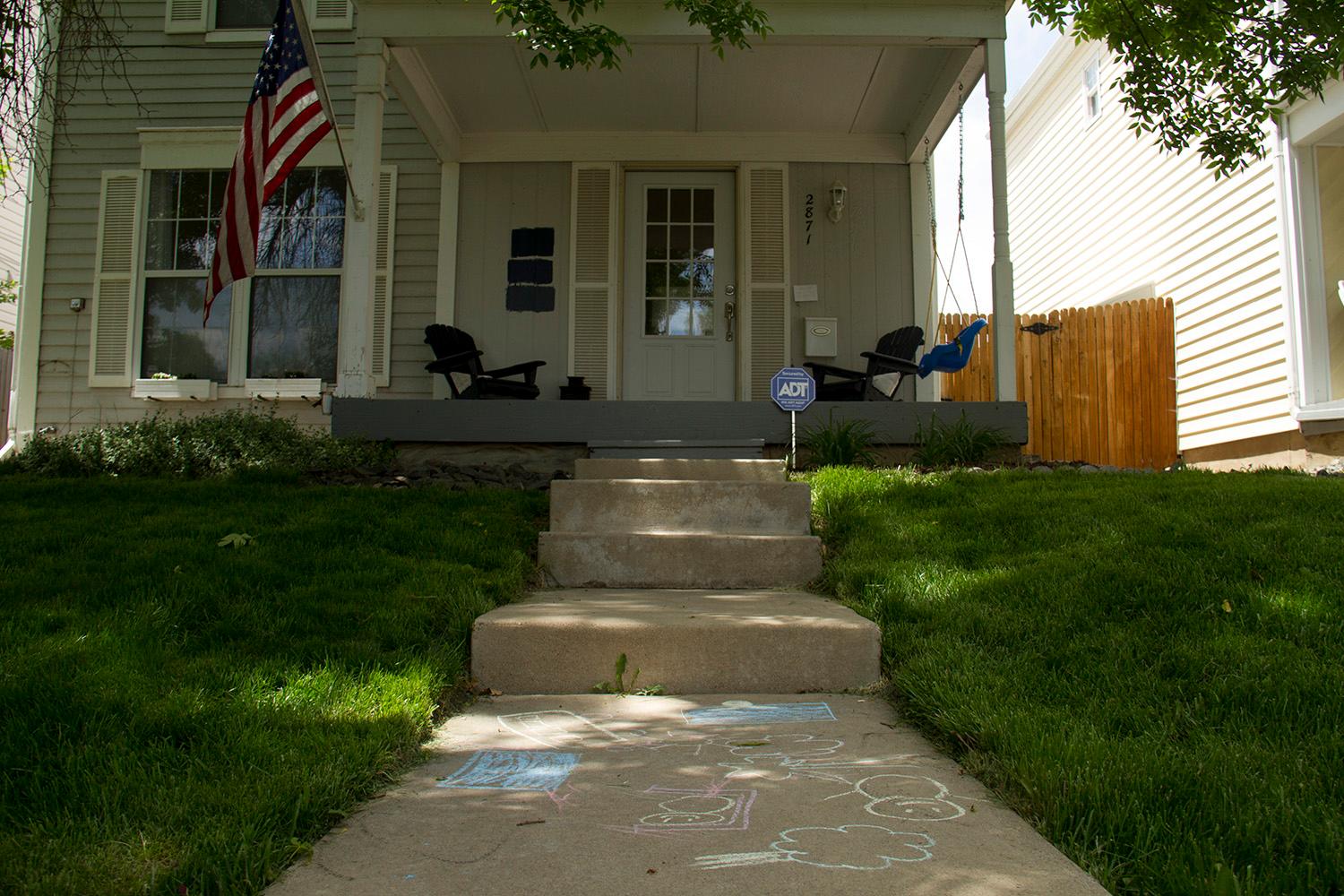
Purchasing a home in Denver is already pretty tough these days. But buying a three-bedroom home? That might be tougher.
Three-bedroom homes in the Denver metro sell twice as often as two bedroom homes, according to Heather Heuer, realtor and board member of the Denver Metro Association of Realtors. That includes condos and apartments.
Compare three-bedroom homes to one-bedroom homes, and the gap gets bigger: For every one bedroom home sold, five three bedroom homes are sold.
"More people generally want those three-bedroom homes for either making sure the kids are all in their own room or having the office, having the guest space, having the workout room, having your meditation spot, whatever it might be," Heuer says.
And if you look at just detached two- and three-bedroom homes -- so just free-standing houses, not condos or apartments -- there's another comparison Heuer says is imperative to Denver right now.
Two-bedroom houses in the Denver metro stay on the market for 45 days on average and sell for 98 percent of their list price, according to DMAR. Three-bedroom houses are on the market for an average of 24 days and sell for 123 percent of their list price on average.
"People are willing to spend significantly over what the list value is in order to secure the home," Heuer says.
So are detached three bedroom houses rare?
First, a fun technical detour: By the international building code, a bedroom needs a door and a "legal exit," usually a window that's big enough for a person to leave the house from, according to Real Property Appraisal Supervisor Tim Beach. However, people's actual use may vary -- think a den that becomes a bedroom or a bedroom that becomes an office. So what you call a bedroom might not actually be a bedroom.
Additionally, while the city's residential property data usually measures bedrooms pretty well, Beach says, there are cases where a house could have more bedrooms or fewer bedrooms than the city thinks. That can happen for reasons like unpermitted renovations or when an owner doesn't correct their assessment.
In Denver, detached homes with three bedrooms represent about a third of all residential property, according to the city assessor's office.

Those detached three-bedroom homes were built mostly after the end of World War II, with a significant uptick around 1951.
Around the city, you're most likely to find a detached three-bedroom home at the periphery of the city where it's less dense and there's room to build.
But now that they're a type of desired home, some homeowners are starting to add a third bedroom, or at least spruce up the one that they have.
"The money's there," says Heuer. "People are able to refinance in order to create the funds necessary to put back into their homes. By doing that, people will buy these two-bedroom homes and create a third bedroom out of it, whether it's going to the basement or if it's popping the top."
The first major remodeling boom happened in 1999 and lasted until shortly before the Great Recession, according to the city's data on residential property characteristics. Remodeling has remained popular in the time since, but city officials caution against putting too much stock in year-to-year remodel statistics.
Walking down Osceola and Perry Streets in Highland, there's no shortage of three-bedroom homes. Some homeowners say they grabbed theirs just because it was what was available.
But others knew they definitely wanted three rooms in their home.
"We bought it because I was pregnant with my daughter and we knew we wanted another kid," said Osceola Street resident Angie Bonato. "It's been wonderful."

On the next block over, Jasmine Gomez says that she wanted more space after living in a two-bedroom apartment. Since she works from home sometimes, the extra room gives her space to work. Or the ability to host people. It can seem like a lot of space.
"Sometimes I forget to go in all the rooms," Gomez said with a laugh.













